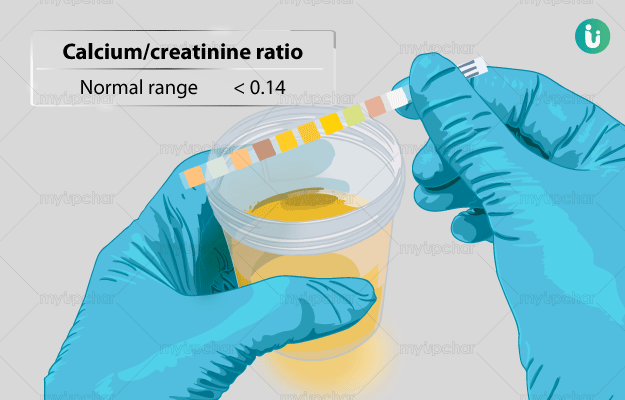What is Calcium/Creatinine ratio?
Calcium/creatinine ratio is a urine test that is performed to detect excess calcium (hypercalciuria) in the urine.
The ratio is calculated and expressed for the amount of calcium against creatine released in the urine by the kidneys. It is a screening test used to detect the presence of disorders that lead to excess calcium in the urine. The test is also known as spot urinary calcium/creatinine ratio.
Abnormally high levels of calcium in urine arise from increased absorption of calcium in intestines, leakage of calcium and phosphorus from kidneys and increased resorption of calcium from bones under the effect of parathyroid hormone. Calcium is excreted in excess amounts in different disease conditions of the parathyroid gland (parathyroidism), kidney stones, multiple myeloma and Paget’s disease, among others. Certain drugs increase the excretion of calcium in urine, such as antacids containing calcium, diuretics, steroids, hormonal treatments (androgens, growth hormone) and overdose of vitamin D.
Excessive calcium released from the kidneys also results in hematuria - blood in urine. Calcium/creatinine ratio helps in the diagnosis of kidney stones and other diseases that result in blood in urine, especially in children.
Furthermore, the ratio is used in the diagnosis of a rare genetic condition called familial hypocalciuric hypercalcaemia, which is marked by raised calcium levels in blood and low urine calcium. In such cases, the calcium/creatinine ratio is below the normal value.






























